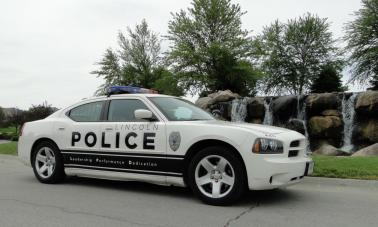Lincoln Police Officer Considering Lawsuit After Falsely Accused of Buying Anabolic Steroids
Lincoln Police Officer Considering Lawsuit After Falsely Accused of Buying Anabolic Steroids
Two officers with the Lincoln Police Department (LPD) in Nebraska were falsely accused of buying anabolic steroids in a criminal investigation initiated by their boss, Lincoln Police Chief Jim Peschong. One of those officers is considering filing a lawsuit against the city for being denied legal counsel during his detention at the police station.
 One of the police officers was detained while a search warrant was executed on his home in September 2015. The officer requested access to police union attorney Gary Young but his requests were allegedly rebuffed.
One of the police officers was detained while a search warrant was executed on his home in September 2015. The officer requested access to police union attorney Gary Young but his requests were allegedly rebuffed.
The LPD narcotics unit, in conjunction with the U.S. Attorney's Office and the Drug Enforcement Administration (DEA), seized a bottle with the word “Anabol” on the label during the raid on the officer's home.
Anabol is one trade name for the illegal anabolic steroid methandienone or methandrostenolone. The most popular and well-known trade name for this substance is Dianabol. However, the name “Anabol” is also used to market a couple of dietary supplements in the United States.
ALR Industries' Pro-Anabol and Nutrex Research's Anabol-5 are two such dietary supplements. The “Anabol” products seized by Lincoln narcotics investigators could have very well been one of these supplements.
The LPD officer insisted that the Anabol product was a legal and non-steroidal dietary supplement. A police laboratory analysis of the products ingredients confirmed that it did not contain anabolic steroids or any other illicit substance. In addition, blood and urine samples submitted by the officers did not find any evidence of steroid use or any suspicious hormonal abnormalities.
LPD Chief Peschong launched the investigation after an Ohio police chief told him that LPD officers were buying products from a sports nutrition store in Powell, Ohio. The store owner was the target of a local steroid investigation. It turned out that the Lincoln police officers were actually buying dietary supplements from the sports nutrition store and not anabolic steroids after all.
Chief Peschong defended his investigation as necessary to ensure that none of his police officers acquired “roid rage”. In addition, he wanted to ensure that none of his officers felt they could operate “above the law”.
"(Police chiefs) want their staff to be cool, calm, collected, not irritable people, not overly aggressive and potentially abusive," Peschong said. "And taking steroids can possibly bring out that behavior a little bit more...
“I think you erode the public trust, (and imply) that there are two sets of standards, that police are above the law and that they can go out and arrest individuals that do break the law but that police officers are above the law and can do anything that they want.”
Chief Peschong's investigation ultimately determined that neither police officer committed a crime. A subsequent internal affairs investigation did not find sufficient evidence to prove or disprove that the officers committed acts unbecoming of an officer. No criminal charges were ever filed and both officers kept their jobs.
"I think they did a good job on being thorough to see whether or not there was a crime that was being perpetrated," Peschong said. “I think that we did our due diligence."
Source:
Johnson, R. (February 11, 2016). LPD investigated their own in steroid case; cleared officer may sue. Retrieved from http://journalstar.com/news/local/911/lpd-investigated-their-own-in-steroid-case-cleared-officer-may/article_beb0c450-c8e2-58c6-9c05-61123f7d58f8.html



 One of the police officers was detained while a search warrant was executed on his home in September 2015. The officer requested access to police union attorney Gary Young but his requests were allegedly rebuffed.
One of the police officers was detained while a search warrant was executed on his home in September 2015. The officer requested access to police union attorney Gary Young but his requests were allegedly rebuffed.